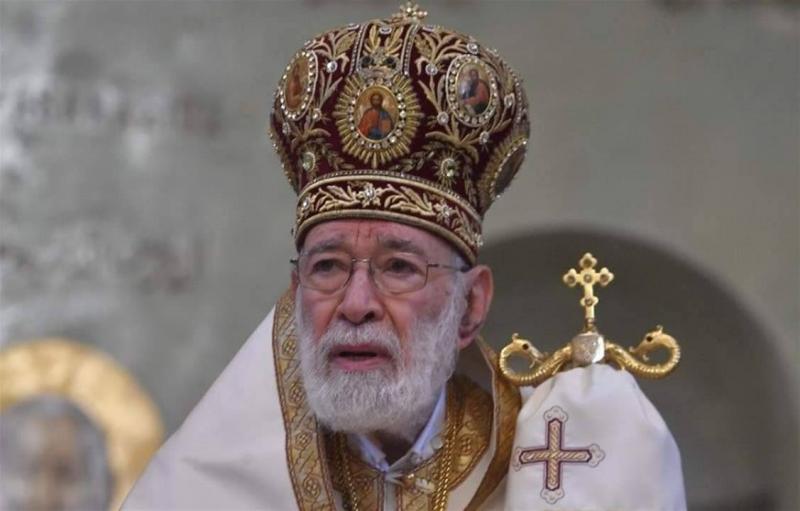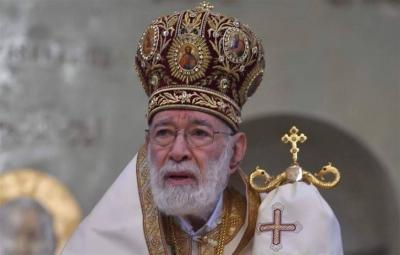Metropolitan Beirut and its dependencies, Bishop Elias Aoudeh, viewed Lebanon as “fractured, burdened by political, social, economic, moral, and security problems, among others." He pointed to "wars, assassinations, arms smuggling, security chaos, threats of a hot summer, crimes, drugs, and other afflictions." He noted that the "emptying of institutions, the disruption of electing a President, and the exchange of accusations add to the burdens of the Lebanese and make their already troubled lives even more difficult."
In his Sunday sermon, Aoudeh emphasized that "the ambitions of officials, rulers, and leaders, along with the ambitions of outsiders, have weakened Lebanon's immunity. That oasis, which was once a focus of attention, has become a jungle with neither law nor order, as its leaders and rulers failed to fortify it against envy, hatred, greed, division, as well as foreign interventions and intrusions that have harmed the country's unity, leading to disappointment consuming its people and divisions paralyzing it. The lack of a leader robs it of role, authority, and control over its circumstances."
While considering that "mismanagement and misassessment, prioritizing foreign interests over domestic ones, failure to adhere to the constitution, and the lack of a President who can take charge have increased vulnerability," Aoudeh reiterated that "the Lebanese must rise above interests and grudges and come together on the necessity of saving their country, starting with electing a President, followed by forming a government to implement necessary administrative changes and essential reforms across all fields, and strictly enforcing laws on everyone without exception."
In this context, Aoudeh expressed "deep regret over the campaign against the security measures taken by the Ministry of Interior to suppress violations and curtail the chaos overwhelming the streets," asking: "Has the enforcement of the law become a crime that warrants confrontation? Isn’t the violation of laws and ignoring the constitution the primary reason for what we have reached? When the government fails to do its job, it is criticized; and when it awakens to its duties, it faces backlash. Is the state built on the ruins of the law? Does chaos sketch the bright image we all aspire to—a civilized, advanced, disciplined Lebanon, where all are equal and under the authority of the law?"
Aoudeh concluded: "We must all support the state in every reformative action it undertakes and hold it accountable for any shortcomings or failures. The retreat of the state in favor of lawbreakers and those rejecting its application and engaging in corruption weakens the state and harms citizens. It is our duty to fortify it, assist it in asserting its authority, enforcing its laws, and protecting our borders and our security, as well as the safety of our children and youth from all harm."




